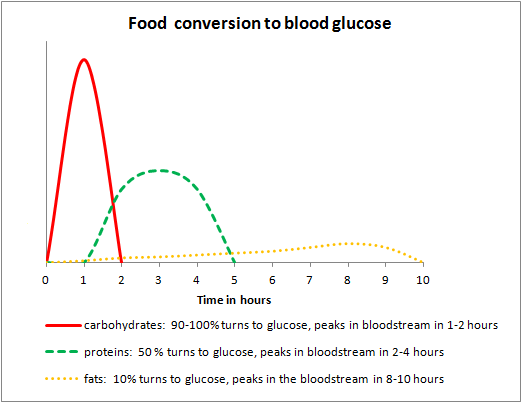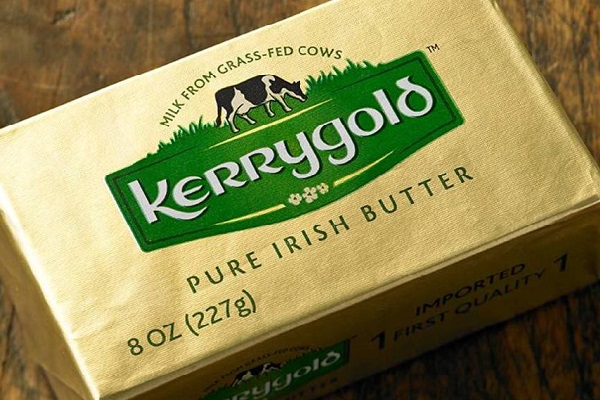A few years ago a book was published called the Bulletproof Diet, written by Dave Asprey. The author does not have a medical degree or formal training in nutrition, but did a lot of personal research that culminated in the loss of a lot of weight and a book outlining how he did it. The diet described in the book is essentially “Paleo”, emphasizing some good points such as:
- Eliminate sugar and replace with healthy fats
- Increase protein
- Remove processed foods and dairy
- Add spices for flavoring
- Eliminate most legumes (particularly peanuts/peanut butter)
However, the book is mainly known for introducing us to “Bulletproof coffee” or “Butter coffee”. It involves using Bulletproof brand of coffee, 1-2 tablespoons of grass-fed butter, and 1-2 tablespoons of MCT oil (derived from coconut oil). It’s become somewhat of a fad, and it is tasty (I do my own version every morning), but anyone who partakes in this habit needs to be aware of a few things.
The Not-So-Good:
1. CHOLESTEROL. There is a lot of saturated fat in this coffee, which will increase both your HDL (good cholesterol) and your LDL (potentially “bad” cholesterol if inflammation and other factors are present). Before consuming this coffee regularly, know your cholesterol numbers and risks (in particular, know your levels of ApoB, LDL particle numbers, and overall quality – not just quantity – of your LDL, VLDL, and HDL). Also, if you have elevated hsCRP, get this under 2mg/dL before taking in such high quantities of fat via butter coffee.
2. ACIDITY. Coffee and MCT (medium-chain-triglyceride) fats are acidic. If you have heartburn/reflux, be cautious.
3. LOW IN NUTRIENTS. This drink is simply all fat, with a some fat-soluble vitamins/minerals. You need to amp up your intake of vegetables and protein with your lunch and dinner meals to make sure you get enzymes and a good balance of non-fat-soluble nutrients to offset the high fat intake.
4. BRANDED. You’re likely to see that “true” butter coffee uses only the Bulletproof brands of coffee (purported to have low to no “mycotoxins”, aka toxins from fungi that affect coffee beans) and MCT oil (a processed oil – yes, processed – that pulls out the beneficial components of coconut oil that supposedly bypass the liver and go straight to the brain for providing mental energy). Truth? I’ve spoken directly with two representatives at Bulletproof, who couldn’t back up their claims with scientific research studies, but did mention that the MCT oil is cold-processed (keeps nutrients intact). It may taste better, and it may do what the company claims to do, but I prefer to use high quality organic coffee beans (ideally fair trade) with a high quality coconut oil. If there was more science backing up the brand, I may reconsider.
The Good:
1. ENERGY. Replacing carbohydrate-rich (aka “insulin-spiking”) breakfast foods with butter coffee will likely give you more mental and physical energy – if done correctly (see the “correct way” to consume butter coffee, at the end of this article, for more information).
2. NUTRIENTS. If using grass-fed butter and high quality coconut oil, you will be getting beneficial fat-soluble nutrients such as vitamin K2 (important for bone and heart health), vitamin A, vitamin D and vitamin E. It is also high in anti-inflammatory omega 3s and CLA fatty oils. Finally, it contains butyrate, which is good for decreasing inflammation in the gut.
3. TASTE: Buttery smooth coffee – need I say more?
4. WEIGHT LOSS. May promote weight loss if consumed correctly. What is the correct/best way? See below…
The “Correct” Way to Consume Butter Coffee:
1. IN ISOLATION. Meaning, only drink this in the morning – don’t combine with food (unless the food is only protein, for example eggs with a little salt or a small handful of nuts). In the Bulletproof diet, the goal of drinking coffee in this manner is to increase ketosis for a few hours (meaning, the body will preferentially burn fat instead of sugar storage). I haven’t found any good studies that support this, so I don’t know the validity of this claim. From a biochemistry perspective, fat and protein do not spike insulin (aka, the “fat fertilizer” hormone) which will prevent the mid-morning low blood sugar drop, and will ultimately keep you satiated and feeling fuller for a longer period of time.

2. BUTTER QUALITY. Only use grass-fed butter (which has high omega 3s and nutrients, and is anti-inflammatory). If it is not grass fed, even if it is organic, it will not have the high content of nutrients as mentioned. Cows convert grass into these nutrients, but cannot convert corn or soy feed into the same nutrients (for example, there are more pro-inflammatory omega 6 oils in non-grass fed butter).

3. COCONUT OIL. Again, use high quality, COLD-pressed, virgin, organic coconut oil. Nutiva and Artisana are good, reputable brands.
4. COFFEE. Use organic coffee (less pesticides and chemicals), and to decrease mycotoxins aim to use beans from one source (e.g. all from one coffee estate, rather than one type of bean from multiple countries).
5. BLEND. You won’t get that frothy, creamy consistency if you stir in the ingredients. Use an immersion blender or traditional blender to get the right consistency and froth.
A Few More Tips: How I Drink This Every Morning:
I mentioned that I drink this almost every morning, but I tweak it a little.
- First, I only use 1 Tablespoon of coconut oil and 1 Tablespoon of grass fed ghee or butter (original recipe calls for up to 2 Tablespoons of each).
- Second, I occasionally add a dash of cinnamon, Chinese Five Spice blend, or cardamom (all for flavor and the benefits of the spices).
- Third, I put in a scoop of Vital Proteins brand of Collagen Peptides or Gelatin (good sources of protein). Gelatin and collagen don’t have much flavor, so I’m not worried about a gritty protein powder consistency when I add these.
- Fourth, I add a little vanilla extract (no sugar added) or stevia for added sweetness.
- And finally, I periodically substitute roasted dandelion tea (good for liver health) or matcha green tea powder (1-2 tsp) for the coffee, for more anti-oxidants and less caffeine.
Yours in Health and Bliss,
![]()

